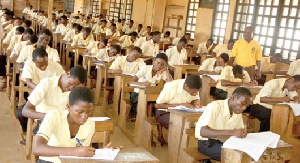Mr Stephen Abarika, the Eastern Regional President of the Girls Education Network (GEN), says supervision and monitoring in public schools are key to improving standards and performance of the Basic Education Certificate Examination (BECE)
He therefore asked all stakeholders especially circuit supervisors of the Ghana Education Service (GES), community leaders, chiefs and elders, schools management committees (SMCs)to upscale their role to ensure that the expected outcomes in the investment of education especially at the basic level was fully realised.
Speaking at the maiden meeting of the GEN, to map up strategies in improving girl- child education, he observed that with strong supervision from all stakeholders’ public schools including girl’s education would be improved.
Mr Abarika, who is also the project officer of AG Care, Ghana, a social and relief organisation of the Assemblies of God Church, said monitoring and evaluation had led to sustainable change in entry, retention, completion and transition of learners in some schools in the Suhum Municipality by AG-Care.
He observed that, the institution of the GEN network indicated that there was a problem with girl- child education, be it enrolment, retention and transition to the next level, apart from the basic level.
He called on partners working towards the girl- child education to step up grassroots stakeholder participation.
The GEN is a Network of NGOs working in the interest of promoting girl -child education in the Region.
It consists of AG-Care, Action Aid, and College for Ama, FLOWER, CRESCCENT, International Child Development Programme, World Vision, Plan International, World Joy and the Girls Education Unit of the GES among other organisations.
Among the objectives of the GEN is to use a common strategy and platform to address issues such as teenage pregnancies, early marriages, poverty and other challenges that militate the enrolment, retention and transition of the girl- child in having a sound education for empowerment.
Teenage pregnancy, remains one of the huge challenges confronting girl -child education in the Region.
According to Ghana Health Service report in 2013, more than 12,000 girls of school going age were recorded pregnant and therefore dropped out of school.
General News of Monday, 7 August 2017
Source: ghananewsagency.com
Supervision key to performance in public schools
Business
















